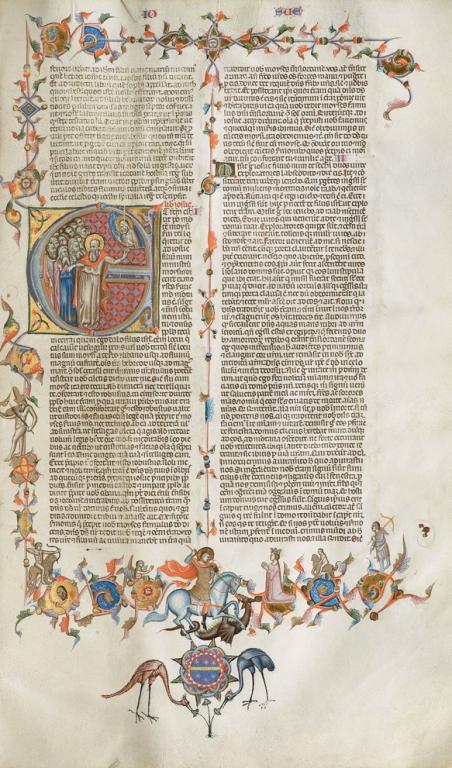
This comment from “Ash” was underneath my National Catholic Register article, “Did Luther Rescue the Bible in German from Utter Obscurity?”:
The historical record is very clear on the fact that the Catholic Church very pointedly did not want people to read the Bible in the vernacular. Before the printing press, this was not a huge problem, as it was the work of years to make a copy of the Bible. However, even then the church was opposed to people learning about the Bible in their own language.
In 1079, Vratislaus, the Duke of Bohemia, wanted to use Slavonic in local church services. He petitioned Pope Gregory VII on this. The response from the pope? “We cannot in any way grant this petition. It is evident to those who consider the matter carefully, that it has pleased God to make Holy Scripture obscure in certain places lest, if it were perfectly clear to all, it might be vulgarized and subjected to disrespect or be so misunderstood by people of limited intelligence as to lead them into error.” In other words, if people read the Bible they’d misunderstand it. In point of fact, though, we see that when people read the Bible for themselves, that they found out that the Church had been blatantly lying to them for centuries.
You managed to completely avoid all of the evidence I gave to the contrary, and put the usual cynical slant on it. But let’s look at what you bring up (I won’t treat your comment as you treated my article). A comment on a Catholic Answers forum thread from three years ago noted:
His actual reason for trying to stop it is clear within the statement. Lay people were often quite uneducated at the time. There was a legitimate concern that some of these people would have significant trouble interpreting the Scriptures for themselves. Even today the same concern was addressed in the document Dei Verbum [Vatican II]:
It devolves on sacred bishops who have the apostolic teaching (7) to give the faithful entrusted to them suitable instruction in the right use of the divine books, especially the New Testament and above all the Gospels. This can be done through translations of the sacred texts, which are to be provided with the necessary and really adequate explanations so that the children of the Church may safely and profitably become conversant with the Sacred Scriptures and be penetrated with their spirit.
Notice the emphasis on instruction and explanations. And the reason: So that the children of the Lord may SAFELY and PROFITABLY come to know the scripture.
But there were different historical trends at different times, too, as we would expect. Thus, the great Protestant biblical scholar F. F. Bruce observed, in his book, The Origin of the Bible: “Even as late as the birth of the Slavonic version in the mid-ninth century, popes Adrian II (867-872) and John VIII (872-882) endorsed the project.”
And of course, as soon as Protestants gained power in any given locality, Catholic works and Bibles were usually banned. So even insofar as this is a legitimate criticism of the Catholic Church, it applies, as usual, to Protestants, too, with even more hypocrisy, since they were the ones saying the Bible is clear and perspicuous to one and all, even the plowboy, and that only Scripture was infallible. I recently provided an overview of massive early Protestant censorship and double standards.
It’s also true that for several centuries in Europe (including, I believe, the 11th century), Latin was virtually a universal language, so that everyone who could read at all, read Latin. Thus, there was less practical need for vernacular versions. As diverse languages developed in Europe, in the High Middle Ages, there was more need for different translations, and these were provided, with Church approval: which was the central point of my article: showing how Luther flat-out lied about the history of the previous 60 or so years since the printing press made it a lot easier (and cheaper) to produce Bibles, or any literature at all for the masses.
We can say these things till we are blue in the face, but if a person is determined at all costs to be prejudiced against the Catholic Church, mere reason can’t break through that shell. My writings are only effective with folks who have an open mind and are willing to go wherever the evidence leads.
***
(10-31-17 [500th anniversary of the start of the so-called “Reformation”!])
Photo credit: uploaded by Paul K on 11-27-11. The 14th century Anjou Bible, was produced at the court of Robert I of Anjou, King of Naples. It eventually fell into oblivion until 2008 [Flickr / CC BY 2.0 license]
***













